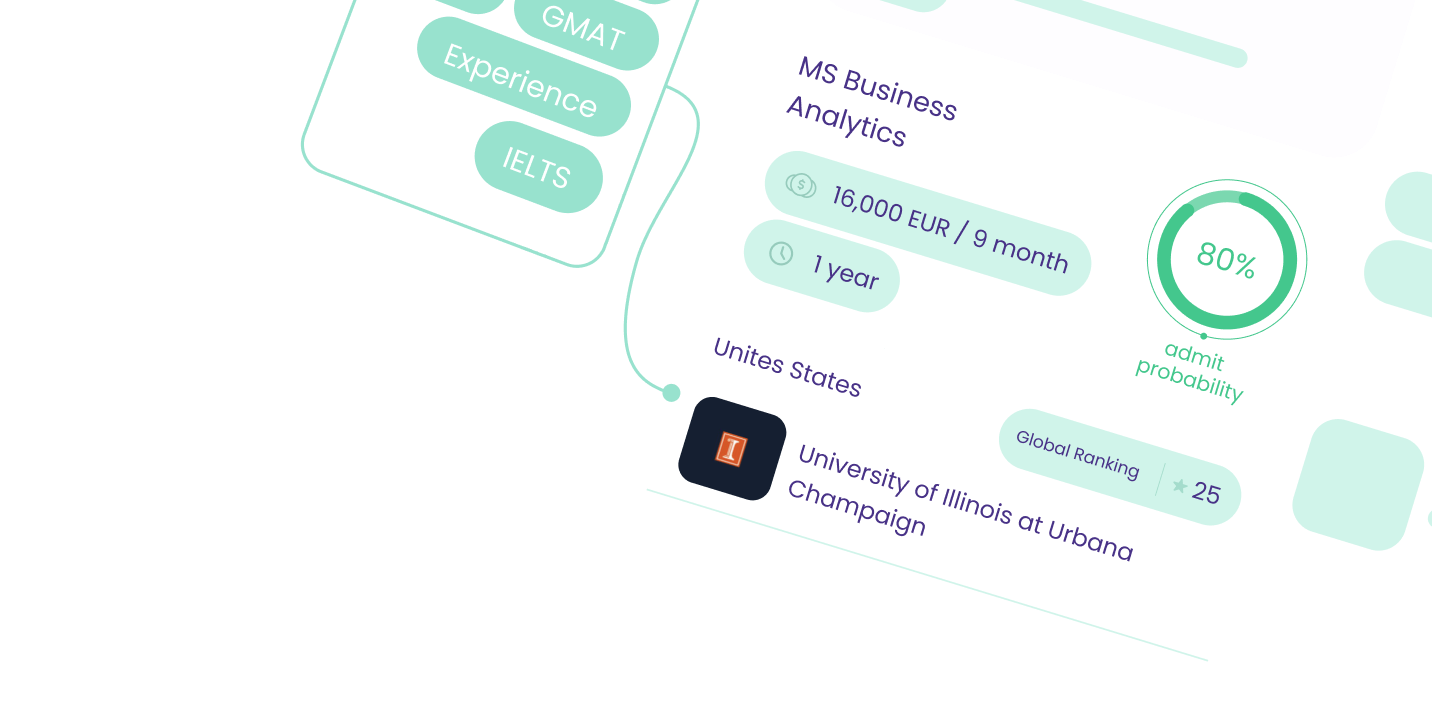Unlock Your Future with out Step-by-Step Guide to the University Application Process in Germany.
Imagine getting accepted into a prestigious German university, with its renowned professors and cutting-edge research facilities. Now, what if we told you that we have the key to simplifying the entire application process and making it more attainable than ever?
If you’re eager to embark on a transformative educational journey, experiencing cultural diversity and gaining a world-class degree, then this guide is tailored just for you. Our step-by-step approach will not only guide you through the application process but also help you discover insider tips to increase your chances of acceptance.
Let’s dive in and explore the exciting path that leads to your future success. Together, we’ll unravel the mysteries of the university application process in Germany and set you on the right course for an extraordinary future.
Detailed Steps for University Application Process in Germany

STEP 1. Researching Universities and Programs

With its wide variety of universities and specialised programmes, Germany provides a wide choice of possibilities for those interested in pursuing higher education. Finding the proper fit begins with understanding the various sorts of institutions.
1.1 German Universities
There are three primary types of universities in Germany, each catering to different academic tastes and career objectives, making up a rich and diversified higher education landscape.
A. Universitäten
These prestigious schools are world-renowned for their research accomplishments and provide a wide range of disciplines, giving students a solid theoretical grounding. For individuals looking for a broad academic experience, they are great because they encourage critical thinking and originality.
B. Fachhochschulen (Universities of Applied Sciences)
Fachhochschulen, which emphasises hands-on training, the development of professional skills, and solid industry contacts, are geared toward practical, career-oriented education. They are an excellent option for students who want to start working as soon as they graduate.
C. Technische Universitäten (Technical Universities)
These universities, which provide cutting-edge research possibilities and specialised programmes, are at the forefront of engineering and technological sectors. They are ideal for aspiring engineers and those who enjoy technology.
1.2 Choosing the Right Program and Degree
Prospective students should match their academic and professional objectives with the available programmes. Make informed judgments by considering curriculum, faculty experience, and internship opportunities.
1.3 Researching Language Requirements and English-Taught Programs
Although many German programmes are taught in German, more institutions offer English-taught courses, making them available to students from abroad. It’s essential to look into the language requirements and programmes that are offered in English that match your tastes.
STEP 2: Understanding Admission Requirements

Understanding the entrance requirements is an essential first step in creating a strong application when thinking of pursuing further education. Prospective students should be aware of the following significant factors whether applying to undergraduate or graduate programmes:
2.1 General Academic Requirements
Universities usually demand a recognised secondary school diploma or equivalent for undergraduate programmes. It’s vital to carefully study the criteria for each course because some programmes may have unique subject prerequisites.
Generally, candidates for graduate programmes must have a suitable bachelor’s degree from an approved university. Specific programmes could demand a specific area of study or set of courses.
2.2 Specific Program Requirements
The specific prerequisites for the chosen programme or topic of study may differ from the general ones. For instance, courses in the sciences can call for laboratory experience or a foundation in mathematics. Students must conduct in-depth study and meet these particular standards to be admitted.
2.3 GPA and Standardised Test Score Expectations
Universities frequently consider the applicants’ grade point average (GPA) throughout the evaluation process. Increased likelihood of acceptance comes from a strong GPA.
In fact, for graduate programmes, several colleges and programmes demand GRE (Graduate Record Examination) results. To get the desired results on these exams, adequate preparation is crucial.
2.4 Language Proficiency Tests
The admissions procedure for overseas students includes a crucial step where they must prove their language skills. German-taught programmes may call for TestDAF or DSH scores, whereas English-taught programmes may need TOEFL or IELTS scores. Students who meet the language proficiency requirements can take part in the coursework successfully.


STEP 3: Application Timeline and Deadlines

Comprehending the application schedule and deadlines is essential for a smooth and effective university application process in Germany. Here is a summary of the essential features:
3.1 Application Periods for Summer and Winter Semesters
Universities in Germany usually feature two semesters: a summer semester that starts in April and a winter semester that starts in October. Each semester’s application deadlines differ based on the university and the programme. Application windows typically run from May to July for the winter semester and from November to January for the summer semester.
3.2 Difference between Application Deadline and Enrollment Deadline
The application deadline is the final day to send the university the necessary paperwork and application materials. To be taken into consideration for admission, you must meet this deadline.
On the other hand, the deadline for enrolling in the institution is the day by which accepted candidates must confirm their intent to do so. Usually, it happens after getting an admissions offer. The admittance position could be recovered if the enrollment deadline is met.
3.3 Tips for Planning and Organising the Application Timeline
A. Research Early
To find the schools and programmes that best suit your academic and professional objectives, begin your search well in advance.
B. Prepare Application Documents
Obtain any essential paperwork, such as transcripts, recommendation letters, and results of language tests, and make sure it complies with the university’s standards.
C. Stay Organized
Keep track of application deadlines, necessary paperwork, and other essential details by making a checklist.
D. Account for Processing Time
Give yourself enough time to process your documents, especially if you need to get certified copies or translations.
E. Apply Early
To avoid any last-minute issues, submit your application well in advance of the deadline.
F. Seek Guidance
If you have any inquiries or require help with the application process, get in touch with university representatives or education counsellors.
STEP 4: Gathering Required Documents for University Applications in Germany

It is crucial to gather a thorough set of documents when going forward for university application process in Germany in order to satisfy the application requirements. The following is a list of important papers:
4.1 Essential Documents
A. Certified Copies of Academic Records
Transcripts and diplomas from prior educational institutions are among them. A certified copy is a photocopy of an original document authenticated as a true copy by the issuing authority.
B. Language Proficiency Certificates
Language certificates such as the TOEFL or IELTS (for English-taught programmes) or TestDAF or DSH (for German-taught programmes) are required to prove language proficiency for non-native speakers.
C. Curriculum Vitae (CV) or Resume
It is frequently necessary to submit a thorough CV outlining educational accomplishments, professional experience, extracurricular interests, and any pertinent credentials.
D. Letters of Recommendation
Your application can be supported by academic references from instructors, professors, or employers who can also shed light on your skills and potential.
E. Statement of Purpose (SOP) or Motivation Letter
This is a personal essay explaining your academic and career ambitions and why you want to attend the specific college and programme.
4.2 Differentiating between Certified Copies and Original Documents
Original records are those issued by educational institutions on an official basis. In contrast, certified copies are copies of those records that have undergone authentication by a recognised body and have its seal. For application considerations, several German universities want to verify copies.
4.3 Obtaining Transcripts, Diplomas, Letters of Recommendation, and Language Certificates
A. Transcripts and Diplomas
Request copies of your official transcripts and diplomas by contacting your former institutions. To maintain their validity, these institutions will give them to you in sealed envelopes.
B. Letters of Recommendation
Speak with your professors, instructors, or bosses who are familiar with you and can suggest you highly. Ask for these letters well in advance to give the authors time to complete them.
C. Language Certificates
You must study for and take the required language competence exams, such as the TOEFL or IELTS for English and the TestDAF or DSH for German, to get the relevant language certificates.
STEP 5: Creating a Powerful Statement of Purpose

In the university application process in Germany, the Statement of Purpose (SOP) is of utmost importance since it enables applicants to highlight their distinctive characteristics and motives to the admissions committee. Here are some helpful hints for creating a compelling and unique SOP:
5.1 Be Genuine and Specific
Describe your genuine enthusiasm for the subject of your choice and the factors that made you choose to study in Germany. Describe the college and the programme to show you have done your homework.
5.2 Highlight Motivation
Clearly express your aims and the goals you hope to accomplish with the programme. Be sure to highlight how your academic and personal goals are aligned with studying in Germany.
5.3 Showcase Academic Background
Emphasise your academic successes, pertinent coursework, and any research or projects that show your industry knowledge.
5.4 Outline Career Aspirations
Tell us about your long-term career goals and how the German programme will support you in achieving them.
5.5 Demonstrate Fit
In order to demonstrate how you are the ideal candidate for the university, relate your academic background, life experiences, and interests to the programme.
STEP 6: Applying through Uni-Assist (if applicable)

Certain university application process in Germany are greatly facilitated through Uni-Assist. It serves as a centralised service that assesses the educational backgrounds of international candidates and sends the results to the appropriate universities.
Some German universities, particularly those that offer German-language programmes, require non-EU applicants to submit their applications through Uni-Assist.
6.1 Step-by-step guide to using the Uni-Assist platform for application
Register for a profile on the Uni-Assist website.
Choose the schools and programmes you want to apply to.
Submit all necessary paperwork, such as transcripts and certifications, together with the assessment cost.
Keep an eye out for Uni-Assist evaluation results, which will be forwarded to the chosen universities for further processing.
STEP 7: Submitting Your Application

You can choose between physical submission and online application portals when applying to universities in Germany. Here are some crucial pointers to make sure the application process goes smoothly:
7.1 Online vs. Physical Submission
Online application portals are available at many universities, making submission simple. Make sure you adhere to the university’s unique standards and instructions.
7.2 Review for Completeness and Accuracy
Verify the accuracy and completeness of all documentation, including transcripts, SOPs, and letters of recommendation. Stay away from mistakes and omissions that could put your application in danger.
7.3 Application Fees and Payment
Know the costs associated with applications and the approved payment options. To prevent processing delays, make sure to pay the charge as soon as possible.
STEP 8: Waiting for Admission Results

The wait for admission results in Germany may be thrilling and anxious. Although processing durations vary amongst universities, they usually range from a few weeks to a few months.
- To prepare for different admission outcomes
- Stay Positive: Practise patience and keep an optimistic outlook as you wait.
- Plan Alternatives: If rejected, consider fallback plans and other colleges.
- Organise Finances: Prepare your money and housing needs accordingly.
- Contact Universities: If the wait grows too long, think about contacting the university for an update on the status of your application.
STEP 9: Applying for a Student Visa

International students who want to study in Germany must complete the German student visa application process. Here is a description of the procedure:
Gather Necessary Documents: Gather all necessary paperwork, such as the acceptance letter, a passport that is still valid, financial documentation, proof of health insurance, and a biometric photo.
Booking Appointments: Make an appointment to submit the visa application and biometric information at the German embassy or consulate in your country.
Visa Interview Requirements: Be ready to discuss your goals for further education, your financial security, and your ties to your native nation.
Tips for Success: Dress professionally, be confident, and provide honest and concise answers during the interview.
STEP 10: Enrolling at the University

The enrolling procedure comes next after getting admissions approval. In order to secure your spot, you must accept the offer and adhere to the university’s rules. Pay the necessary semester costs to establish your identity as a student and secure the student health insurance necessary for enrollment.
Plan your trip to Germany well in advance to give yourself plenty of time to settle in before sessions begin. To discover an appropriate place to live while you study, consider different housing alternatives such as private rentals or dorms for students. You will be better able to adjust to university life in Germany if you are well-prepared.
STEP 11: Preparing for Student Life in Germany

Understanding the local culture and academic environment as an international student in Germany is crucial for a positive experience. This advice will assist you in adapting:
Embrace German Culture: To fit in more easily with the locals, become familiar with German traditions, customs, and social mores.
Language Skills: Although English is widely used in Germany, knowing some fundamental German phrases will improve interactions and communication.
University Support: To make a move more accessible, make use of the university’s orientation programmes and support services.
Engage in Extracurricular Activities: Join groups or organisations for students to network and meet individuals who share your interests.
Embarking on a Fulfilling Journey in Germany!

Congratulations!
You have now unlocked the secrets to successfully navigate the university application process in Germany. Armed with this comprehensive step-by-step guide, you are well-prepared to embark on an incredible academic journey in one of Europe’s most prestigious destinations.
Remember, pursuing higher education in Germany opens doors to unparalleled opportunities for personal growth, cultural enrichment, and career advancement. By following our expert advice and tips, you have maximised your chances of securing admission to your dream university.
At AdmitKard, we are committed to turning your dreams into reality. Our team of experienced counsellors and experts will guide you through the entire application process, providing personalised support and invaluable insights. We believe that every student deserves a chance to excel, and we are here to ensure that you have the best shot at getting admitted to your desired university in Germany.


Frequently Asked Questions
Q. What should my Statement of Purpose (SOP) contain?
Your SOP should showcase your drive, educational background, career goals, and programme fit.
Q. How long does it take to process an application to a university?
Processing times vary, but admission outcomes typically take a few weeks to a few months.
Q. How can an international student obtain housing in Germany?
Look into options, including private rentals, online marketplaces, and student housing, before you arrive in Germany.






Comments (0)